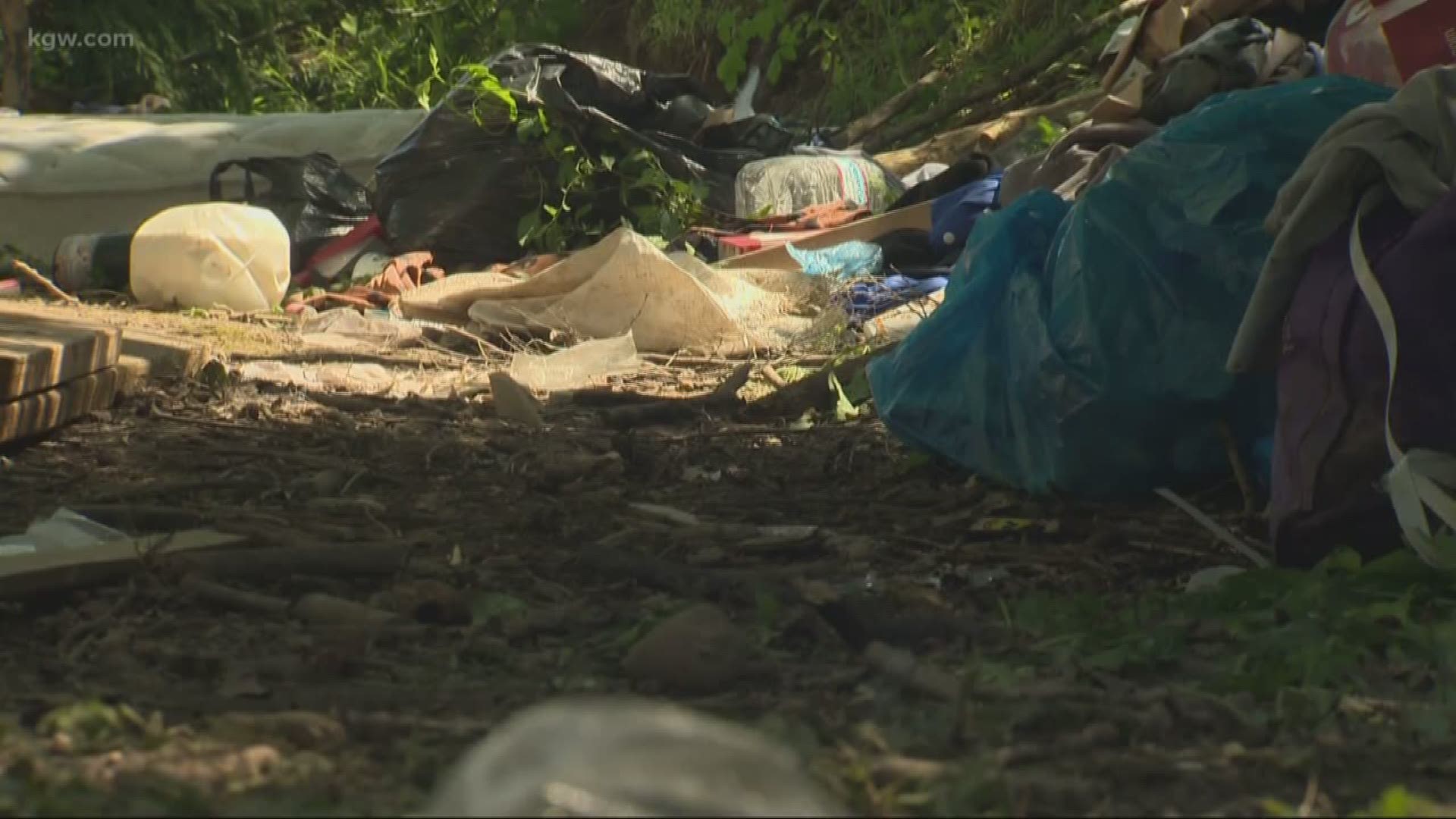PORTLAND, Ore. — Less than 24 hours after a few dozen homeless people and advocates rallied in front of City Hall, demanding a stop to the practice, Portland's mayor stood in front of a podium and said he believes city-funded sweeps of homeless camps should continue.
"I believe it is important that we continue to have a camp cleanup process," Mayor Ted Wheeler said at a news conference Friday.
The topic was top-of-mind this week, thanks to an item listed on Wednesday’s city council agenda.
Commissioners were scheduled to vote on a new, historically expensive contract with the biohazard firm tasked with clearing out and cleaning up illegal camps across the city.
The firm’s name is Rapid Response, and at $4.5 million per year, the contract would solidify its role in Portland’s housing crisis for the next five years.
It’s a role and a routine that, advocates argue, traumatizes the city’s homeless and often causes them to lose precious belongings.
“You don’t have the basic things you need to survive. You don’t have survival gear which they take and destroy or don’t give it back to you,” said Jeffrey Liddicoh, an organizer of Thursday’s rally at City Hall. “Tents, sleeping bags, tarps, people’s medications get taken.”
At the last minute, Wednesday’s vote was tabled with Wheeler citing a packed agenda.
It’s been rescheduled until January.
For a short while, advocates saw it as a sign of hope that their message might spark change.
At Friday’s news conference, those hopes were dashed.
“We do not randomly go out and harass or move people camping on the streets. The whole reason that we have this contract around camp cleanup is so that we are thoughtful and compassionate in how we prioritize the cleanup of camps,” Wheeler said.
The mayor said since the city started clearing camps from Oregon Department of Transportation land, the number of cleanups has ballooned.
Crews cleaned up 2,800 last year alone, according to the city’s website.
A staffer added much of the $4.5 million will be reimbursed by ODOT, per the intergovernmental agreement that made city-run cleanups on highway-adjacent property possible.
On Thursday, its owner, Lance Hamel, declined KGW’s request for an interview, but said the process has gotten much more organized since the city took over all cleanups within its geographic footprint.
The inner Southeast Portland warehouse where campers’ possessions are, by law, catalogued and stored is now open on Saturdays, and campers no longer need appointments to come and retrieve their things.
The mayor on Friday also referenced improvements in the program, but didn’t elaborate.
He added he was open to hearing public comment on the issue, but he held fast to his January deadline.
“We will be bringing the contract back to city council,” he said.
The quick refusal to consider changing course stunned houseless advocates, including Street Roots executive director Kaia Sand.
“To me it just feels a little bit absurd, and I think it's really important for us in the city to say so,” she said Saturday.
Earlier this week, she’d tweeted about her opposition to the new contract, writing “Let's call on City Council to put the brakes on a new sweeps contract for Rapid Response. Give our community six months to present a constructive alternative. We certainly can do that. We can imagine a more humane city.”
That, in a nutshell, is what she’s still asking of the city.
She hopes the January delay will give her enough time to change minds at City Hall.
“Imagine if in our city, we wanted to drive people further into poverty, and we really didn’t want to solve homelessness. Then we would design a system in which we continually moved people, we took their possessions, and we would exhaust them, retraumatize them as they ran around trying to start over again and again… That’s really kind of absurd. It’s as if we want to keep people in poverty and homelessness, and I know that’s not true,” she said. “so we just want to slow things down so we can have a conversation and really align values.”

